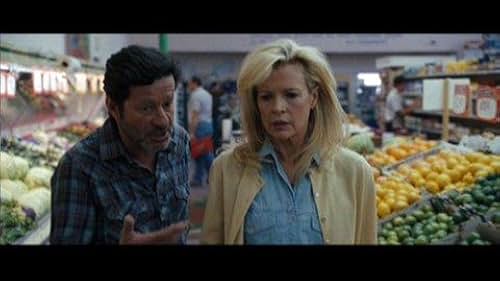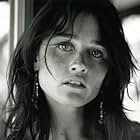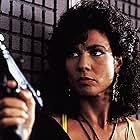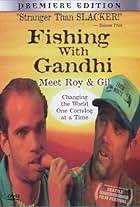A drama with a two-tiered storyline concerning a mother and daughter who try to form a bond after the young woman's difficult childhood.A drama with a two-tiered storyline concerning a mother and daughter who try to form a bond after the young woman's difficult childhood.A drama with a two-tiered storyline concerning a mother and daughter who try to form a bond after the young woman's difficult childhood.
- Awards
- 2 wins & 3 nominations
Diego J. Torres
- Cristobal
- (as Diego Torres)
Rosalia De Aragon
- Aunt Rebecca
- (as Rosalia de Aragon)
- Director
- Writer
- All cast & crew
- Production, box office & more at IMDbPro
Storyline
Did you know
- TriviaIn a 2008 interview, Charlize Theron said taking her clothes off in front of cameras in this and any other film is is as easy as drinking for her. "I don't really think about it much. I read the scene and if it makes sense I do it. I treat it the same way as I would any other scene. Whether it's a nude moment or sitting at a bar drinking, it's all choices. I don't think about it as nudity."
- GoofsIn the airborne scene of the crop duster dusting the field, the course and actions of the dusting process were inconsistent with real crop dusting. Spraying began at a point well into the field, and no distinct pattern was set such as to avoid missing or re-spraying spots.
- Alternate versionsThere are two versions. Runtimes are: "1h 47m (107 min)" for the theatrical release, and "1h 51m (111 min) (Toronto International) (Canada)".
- SoundtracksFalling Star
Written by Ali Dee (as Ali Theodore), Henry Hey, Alana Da Fonseca (as Alana da Fonseca),
Zach Danziger (as Zach Denziger)
Performed by E. Wilson
Courtesy of DeeTown Entertainment
Featured review
Cause harm repeatedly to most parts of the body and they eventually grow desensitised, calloused and indifferent to the pain over time. This dispassionate, earthy and very dry aesthetic that film-maker Guillermo Arriaga applies to the world of his first major directorial outing is king; between the barren desert landscapes that permeate within the backdrops of his strangely distant and out-of-sync characters and the sparse narrative that intertwines it all together, The Burning Plain views life as a series of scars—cold and unrepresentative of the pain that brought them to the surface, but a firm reminder as such that nothing ever quite goes away, no matter how far you run. For the characters of Arriaga's story, a central catastrophe of sorts serves as the unfortunate catalyst that will bring them all together whether they like it or not. A burning trailer, housing two lovers sharing a passionate affair behind their families back, exploding in a rage of flames seemingly caused by accident. For them, the movie opens with their death thus absolving them from living with their irrevocable actions, but for those they leave behind the past stays as a constant and dictates largely how each of their futures will develop.
Serving as a somewhat humbled character piece that centres on a small group of intertwining stories between the two conflicted families, The Burning Plain is an unassuming and dry landscape of drama. For the majority of the feature, the movie is split between three narratives, most of which take place over different timelines told in a back-and-forth manner which informs but never confuses the viewer as to where each of these characters are going, and where they have been. This multi-layered and contorted style that Arriaga implements here can obviously get a little confusing at times, yet enough care is taken to allow each of the stories to have their own breathing room. As a result, the characters which take centre stage feel nicely developed and human—something integrally important to a story such as Arriaga's. In the end, while it seems that some plot developments never seem to be heading to any sort of meeting point, there exists a sort of catharsis and closure to the movie that ties everything together nicely, but perhaps too nicely. The ending is somewhat dubious, but nevertheless feels like the logical step when taken in retrospect.
As mentioned in the opening paragraph, a central theme to Arriaga's feature here is the suppression of emotion—of a cool, collected and strangely alien approach to relationships with other people. While there are plenty of moments where the director opts to balance such instances out with moments of palpable passion (most of which occur between the two burning lovers), the dominant motif here is that callous and introverted sense of misdirection and ambivalence that plays such a major part in a few of the central characters' stories. The performances then, which can be hard to grasp on to as a result, nevertheless do well to keep things human without ever sacrificing that uniquely cold tone. This isn't a feature that will immediately grasp you with its story or characters, and the performances from the cast are very much the same. Instead The Burning Plain opens up as it goes along, eventually climaxing in a series of finely performed expulsions of emotion. It is in this final act that much of Arriaga's story comes together and pieces fall into place, so it's appropriate that much of the movie's most cathartic, and warmer shades transpire here.
For The Burning Plain to truly come off the screen however, one has to feel for the characters that dominate the screenplay from the get-go, which unfortunately is not the case. While it is certainly evident that Arriaga's crafts an interesting and somewhat unique presentation to an otherwise familiar story thanks to his callous approach to much of the proceeding drama, the movie too often falls a little short of its intended destination thanks to the overly cold opening and unsurprising ending. The result is a feature which definitely succeeds in offering two hours of finely plotted drama, but which also fails at making any more of an impression. The characters are compelling in their own strange way, the narrative complicated but not to the extent that all hope is lost—for those two elements alone I could recommend The Burning Plain to viewers and that's not even taking into account the performances and imagery in twine. In the end however, Arriaga doesn't quite reach where he tries to; The Burning Plain is and enjoyable and rewarding experience, but it lacks the extra zest needed to carry it on through to something more profound and memorable.
Serving as a somewhat humbled character piece that centres on a small group of intertwining stories between the two conflicted families, The Burning Plain is an unassuming and dry landscape of drama. For the majority of the feature, the movie is split between three narratives, most of which take place over different timelines told in a back-and-forth manner which informs but never confuses the viewer as to where each of these characters are going, and where they have been. This multi-layered and contorted style that Arriaga implements here can obviously get a little confusing at times, yet enough care is taken to allow each of the stories to have their own breathing room. As a result, the characters which take centre stage feel nicely developed and human—something integrally important to a story such as Arriaga's. In the end, while it seems that some plot developments never seem to be heading to any sort of meeting point, there exists a sort of catharsis and closure to the movie that ties everything together nicely, but perhaps too nicely. The ending is somewhat dubious, but nevertheless feels like the logical step when taken in retrospect.
As mentioned in the opening paragraph, a central theme to Arriaga's feature here is the suppression of emotion—of a cool, collected and strangely alien approach to relationships with other people. While there are plenty of moments where the director opts to balance such instances out with moments of palpable passion (most of which occur between the two burning lovers), the dominant motif here is that callous and introverted sense of misdirection and ambivalence that plays such a major part in a few of the central characters' stories. The performances then, which can be hard to grasp on to as a result, nevertheless do well to keep things human without ever sacrificing that uniquely cold tone. This isn't a feature that will immediately grasp you with its story or characters, and the performances from the cast are very much the same. Instead The Burning Plain opens up as it goes along, eventually climaxing in a series of finely performed expulsions of emotion. It is in this final act that much of Arriaga's story comes together and pieces fall into place, so it's appropriate that much of the movie's most cathartic, and warmer shades transpire here.
For The Burning Plain to truly come off the screen however, one has to feel for the characters that dominate the screenplay from the get-go, which unfortunately is not the case. While it is certainly evident that Arriaga's crafts an interesting and somewhat unique presentation to an otherwise familiar story thanks to his callous approach to much of the proceeding drama, the movie too often falls a little short of its intended destination thanks to the overly cold opening and unsurprising ending. The result is a feature which definitely succeeds in offering two hours of finely plotted drama, but which also fails at making any more of an impression. The characters are compelling in their own strange way, the narrative complicated but not to the extent that all hope is lost—for those two elements alone I could recommend The Burning Plain to viewers and that's not even taking into account the performances and imagery in twine. In the end however, Arriaga doesn't quite reach where he tries to; The Burning Plain is and enjoyable and rewarding experience, but it lacks the extra zest needed to carry it on through to something more profound and memorable.
- A review by Jamie Robert Ward (http://www.invocus.net)
- How long is The Burning Plain?Powered by Alexa
Details
- Release date
- Countries of origin
- Official sites
- Languages
- Also known as
- Câu Chuyện Của Lửa, Nước, Khí Và Đất
- Filming locations
- Production companies
- See more company credits at IMDbPro
Box office
- Budget
- $20,000,000 (estimated)
- Gross US & Canada
- $200,730
- Opening weekend US & Canada
- $58,749
- Sep 20, 2009
- Gross worldwide
- $5,642,478
- Runtime1 hour 47 minutes
- Color
- Sound mix
- Aspect ratio
- 2.35 : 1
Contribute to this page
Suggest an edit or add missing content




































